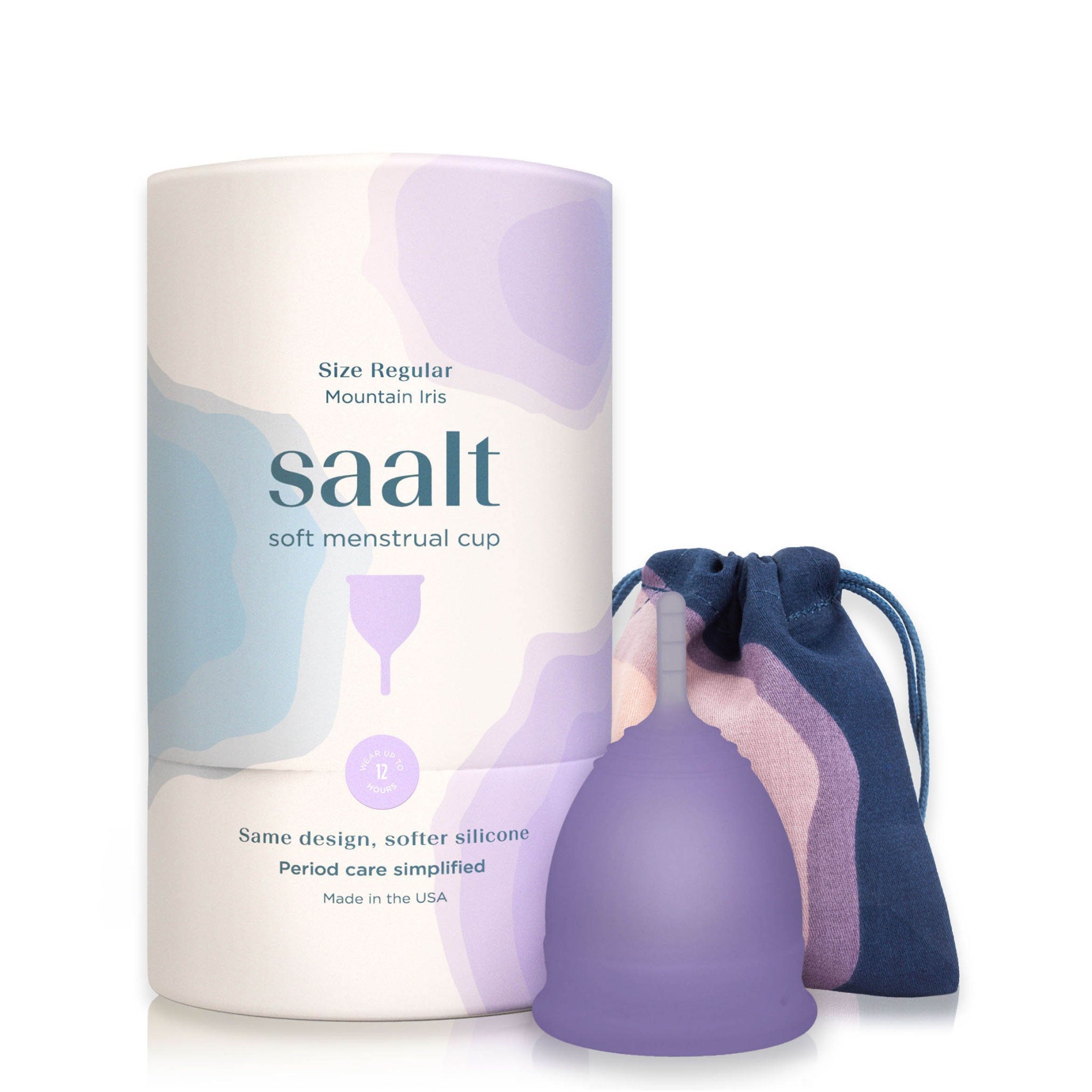Our menstrual cycles are more than a monthly bleed. They are a way for our bodies to communicate with us. I don't know about you, but I grew up with a painful, heavy period and thought that this was normal, and to just accept it. I looked at my period as an inconvenience, something that made my life harder, and I didn't recognize how important it is. This message was then reflected in things like tampon and pad commercials showing a woman in pain and annoyed with her period.
I had no idea that I could gain insights from my period and the rest of my cycle. Our cycles give us real-time feedback about our health and how our bodies are responding to things like stress. It can feel like you're discovering a big secret that no one knows about when you start learning about your menstrual cycle.
Learning From Your Period
It's time to start benefiting from all of the information our bodies give us each month. There are several different ways you can learn from your period. Based on when we get it, how heavy it is, how long, or the amount of pain/discomfort, our bodies are giving us signs that something is or isn't off. For example, I often get asked about why someone's period is late. The first thing I ask the person is how much stress they've been under, travel, illness, poor sleep, etc. These can all delay ovulation, which prolongs your cycle.
Let's look at some of the different ways you can learn from your period.
A Late Period
The biggest thing you want to remember when it comes to your period is that it all depends on when you ovulate. If you ovulate later in your cycle, your period will come later. This means the question is, what causes you to ovulate later?
The biggest reason is experiencing stress before ovulation, which causes a delay and lengthens your cycle, making your period later than typically expected. Possible stressors include illness, less sleep, travel, under-eating, over-exercising, significant mental/emotional stress, etc. These can all put off ovulation, which delays your period.
An Early Period
When our period is early this means our cycle is shorter. This typically means that we ovulated and then experienced significant stress. Experiencing significant stress post ovulation often shortens the luteal phase and leads to a shorter cycle.
A Painful Period
A painful period is often a sign of inflammation. This inflammation can come from a number of different areas and is typically related to having excess estrogen. One of the best things you can do with a painful period is supporting liver function to move out excess estrogen. Nourishing your body with whole foods, quality proteins like eggs and bone broth, eating raw carrots daily and working in healthy fats like coconut oil are all helpful. Turmeric and ginger are my two go-tos for reducing inflammation. Ginger in particular has been heavily researched and shown to reduce menstrual pain. While there are many supplements and herbs to support liver detox, we want to be thinking of daily habits that can support us all month long.
Spotting
Spotting in the days leading up to your period can be a sign of low progesterone. Spotting before or after ovulation is typically a sign of estrogen imbalances. When estrogen is high and then drops (like when we ovulate) that large drop can lead to spotting.
A Heavy Period
A heavy period is defined by using 16 or more super tampons or losing more than 80ml of blood. The most common cause of a heavy period is low progesterone, since progesterone thins the uterine lining. When we don't have enough progesterone, the uterine lining doesn't get thinned out, which leads to a lot more blood. The only way we make progesterone is through ovulation. Thyroid dysfunction is very common and can lead to low progesterone levels since we use thyroid hormone in the ovaries. Conditions such as endometriosis and adenomyosis also lead to heavy periods.
Menstrual Cycle Awareness
By now, you likely realize how insightful monitoring your period can be, but what else should we monitor to gather information from our bodies?
Other ways we can learn from our cycle:
- Cycle length: Monitoring the time between periods allows you to see if you have consistent cycles.
- PMS symptoms: experiencing acne, bloating, constipation, diarrhea, etc.
- Energy throughout the cycle: our energy will vary throughout the cycle, depending on the phase we are in. Generally, our energy reduces the days leading up to and during our period and then starts to increase.
- Sleep at different times of the cycle: are you experiencing insomnia leading up to your period?
- Ovulation*: monitoring your cervical mucus and basal body temperature allows you to identify when ovulation has occurred during your cycle. If you want to learn how to do this, Taking Charge of Your Fertility is a great place to start.
*We do not ovulate on hormonal birth control. For this reason, I do not recommend trying to track this when taking the pill or hormonal IUDs.
Ending Thoughts
One important note I want to make is that sometimes things happen—maybe you travel or have a big project to finish that month so you get less sleep and your period gets pushed off. Try not to freak out. The last 100 days impact your current cycle, so it may not be something you did or did not do this past month. Make a note and let it go. One cycle isn't a huge concern. It's when we start seeing it repeat itself over several cycles that we likely need to intervene.
You wouldn’t have made it this far if you weren’t already interested in period health. Why not do something that’s healthy for you and the planet? Upgrade your period with a menstrual cup, menstrual disc, or period underwear!
To learn more about how to have a healthy period, download my free guide: Healthy Period Guide.
About Amanda Montalvo
Amanda Montalvo, RD, FDN-P is a women's health dietitian that helps women get to the root cause of hormone imbalances and have healthy menstrual cycles. Amanda started off her education in nutrition with the traditional route, but after dealing with her own health problems after getting off hormonal birth control she quickly realized the value of functional medicine. After healing her acne, balancing her hormones, and learning the value of her menstrual cycle, Amanda found her purpose—to help women create a body in balance and not settle for anything less.
Shop: Best menstrual cup
Shop: Best menstrual disc
Shop: Best period underwear





